The 7th Orange County Women's Health Summit: Advancing Health Equity for Women in Orange County took place on Friday, November 8, 2019 at the Beckman Center in Irvine, CA.
Presentations explored inequities related to race, geography, immigration status, sexual orientation and gender identity and their impact on women’s health in Orange County.
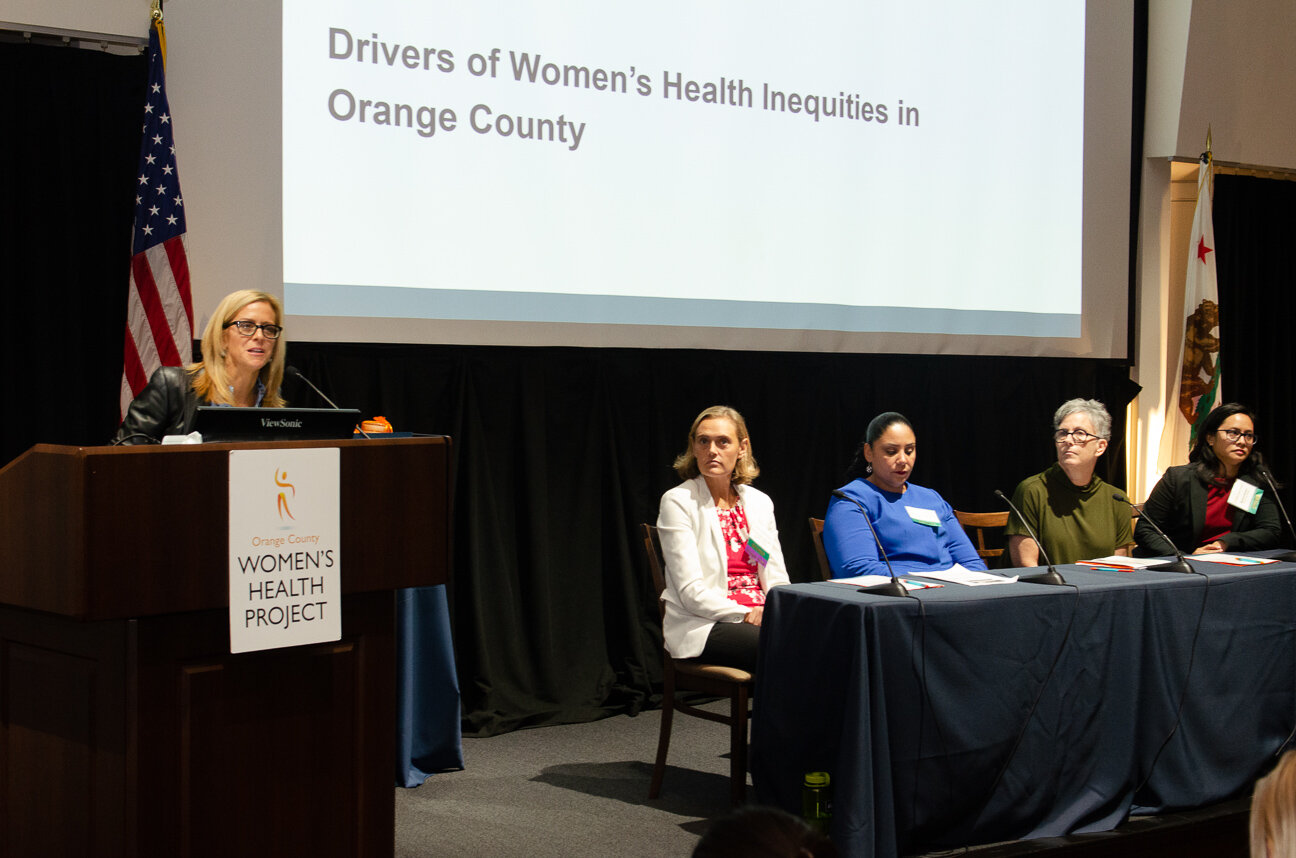
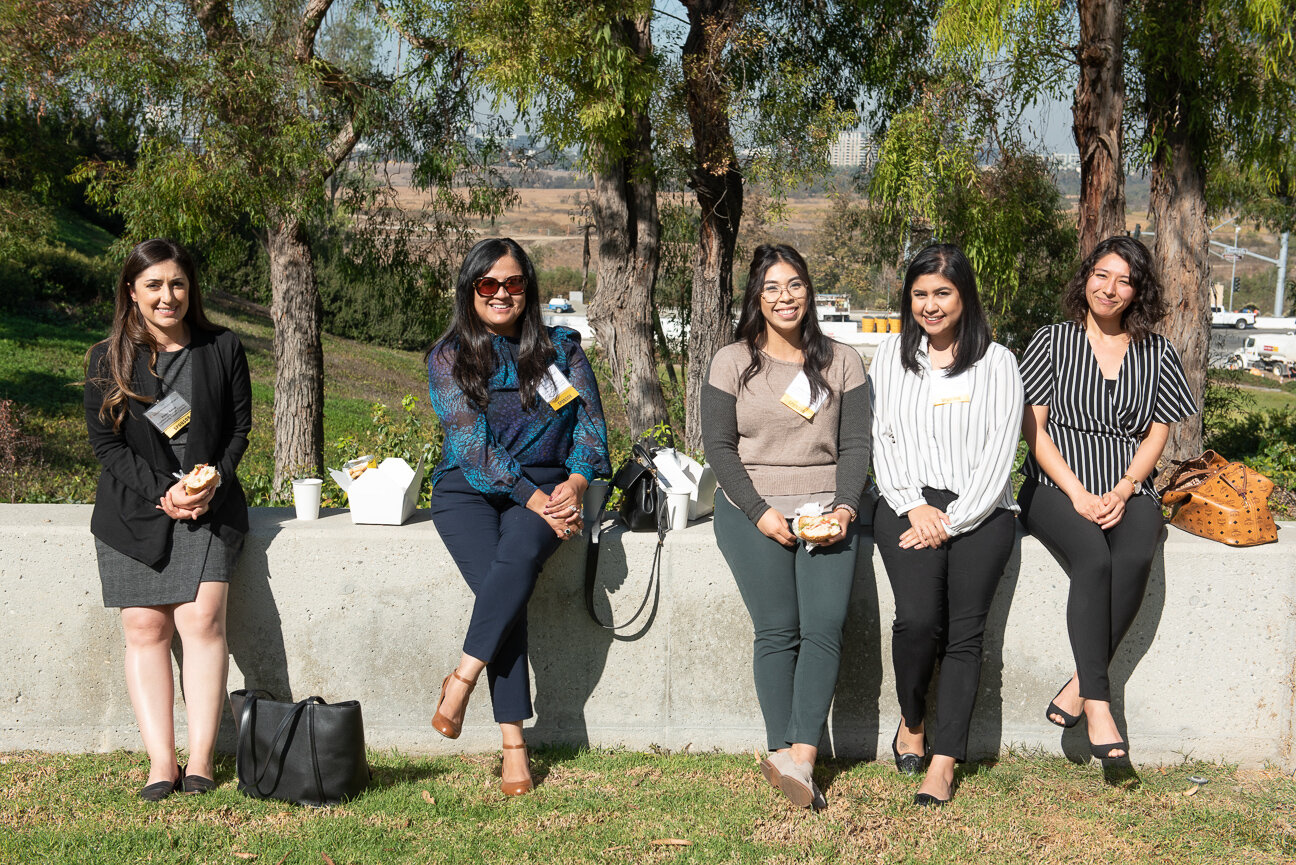
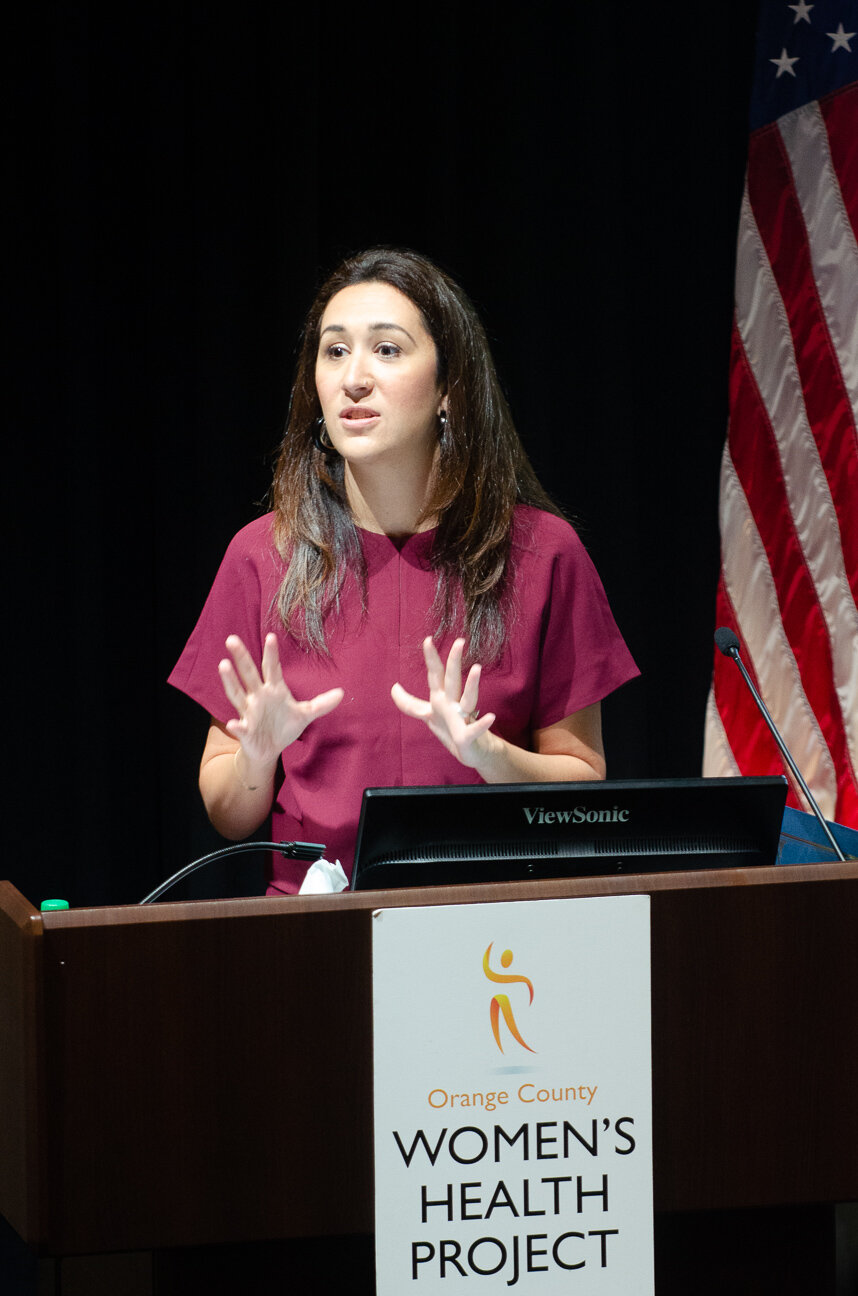
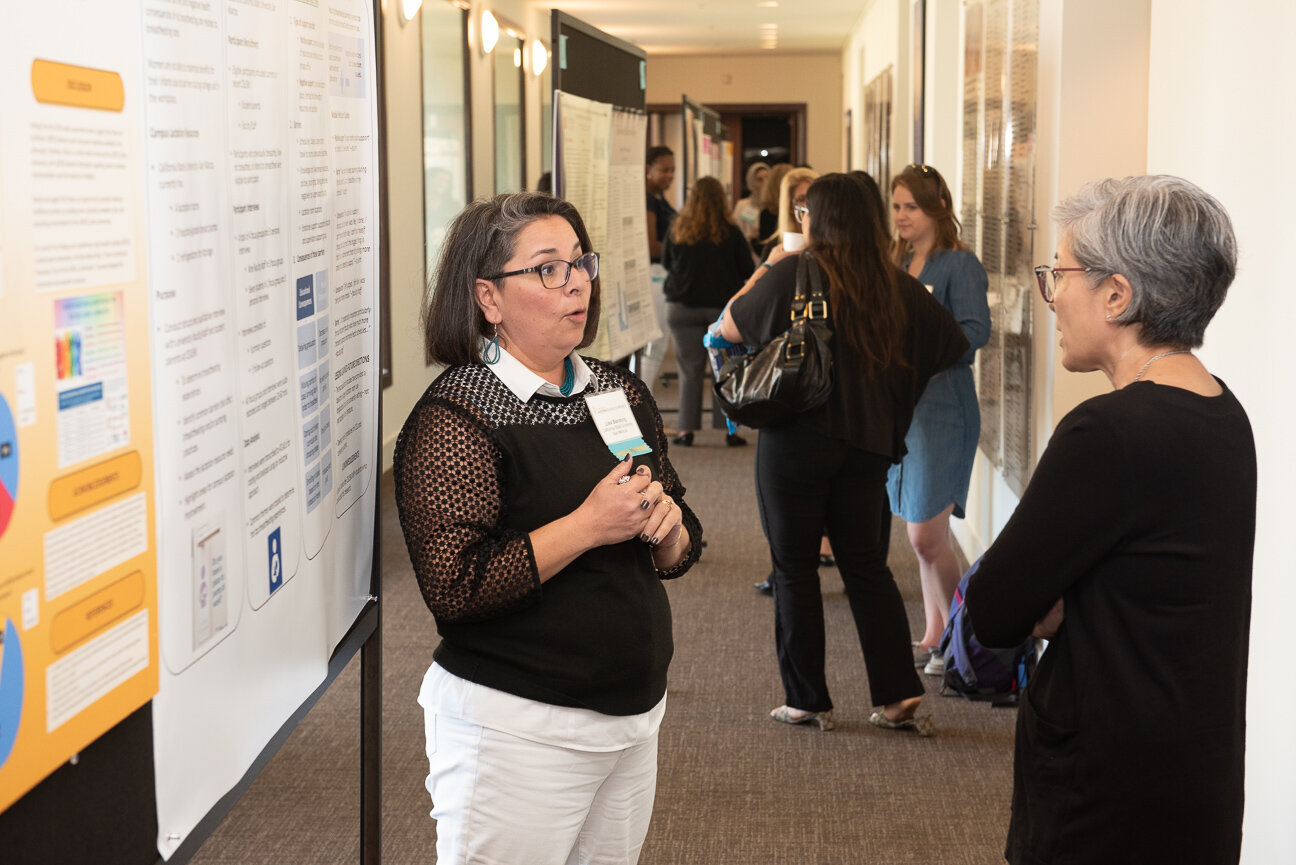
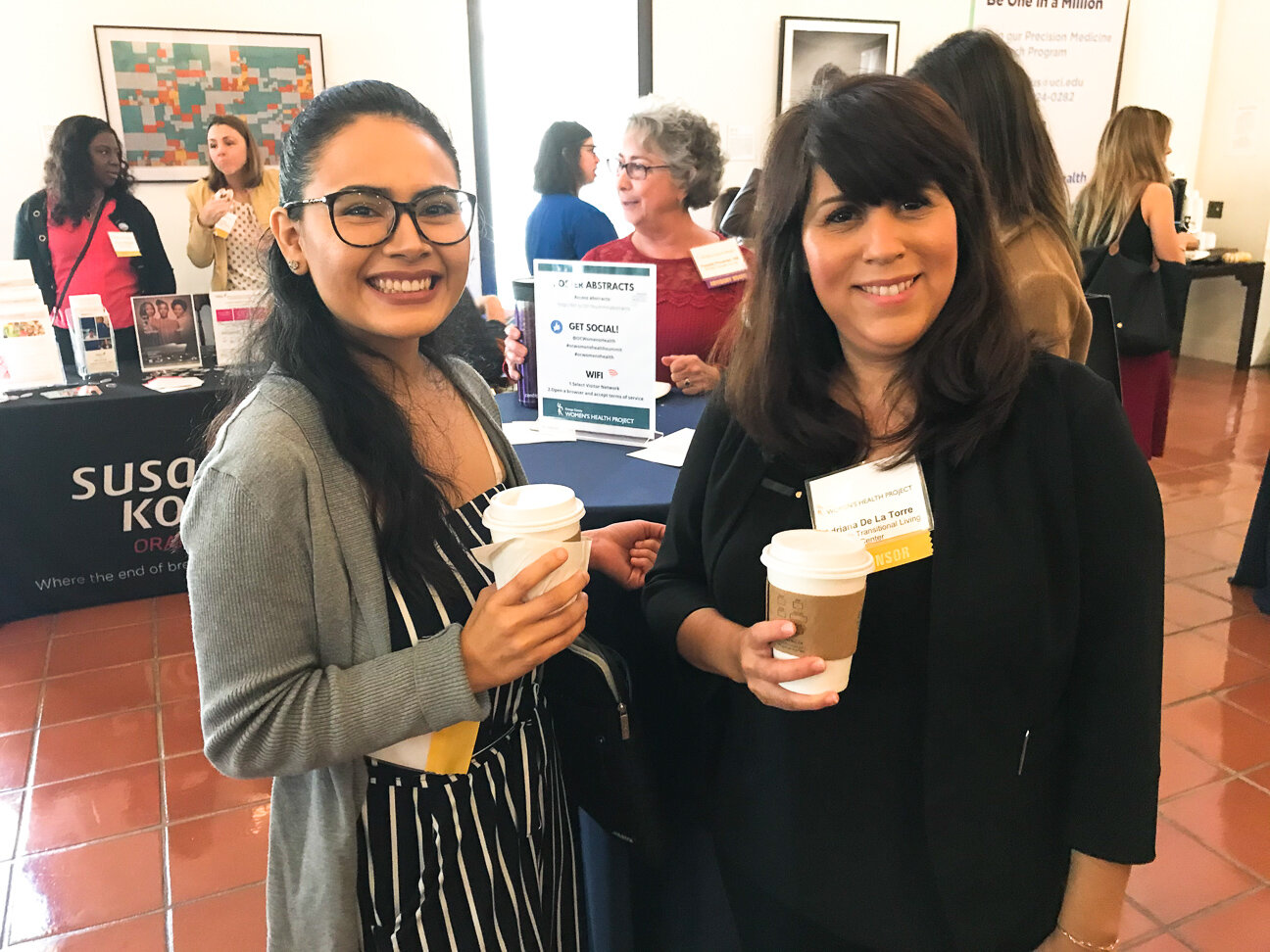
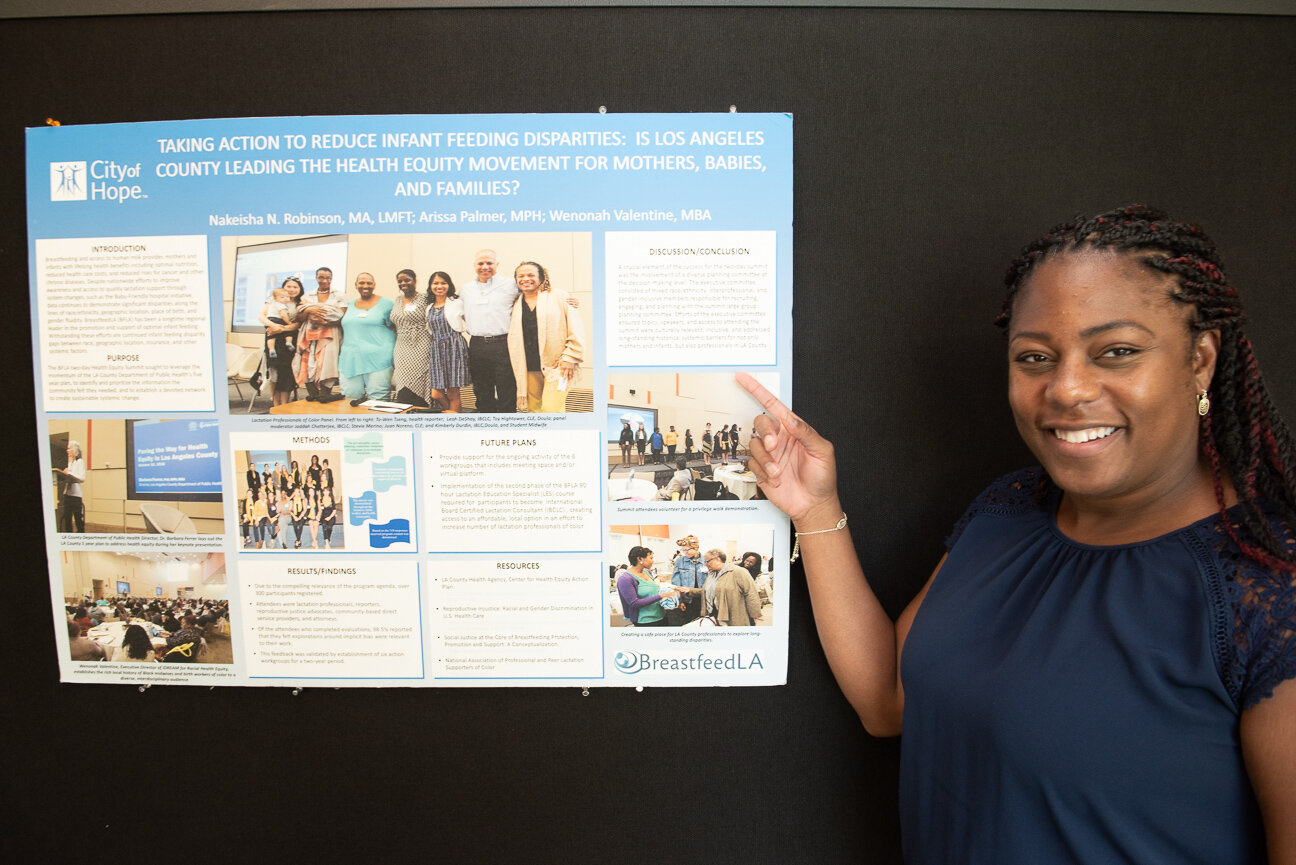
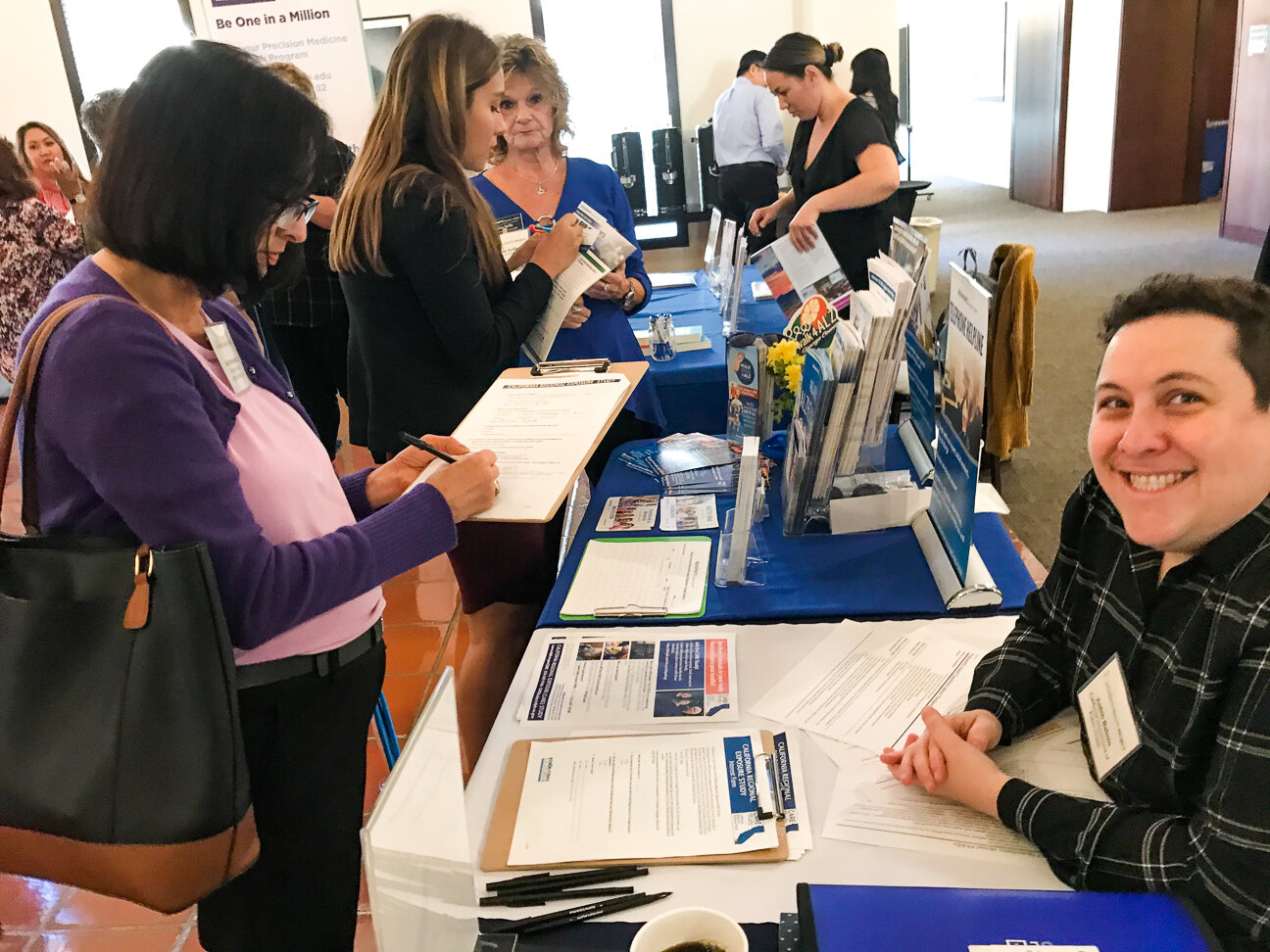
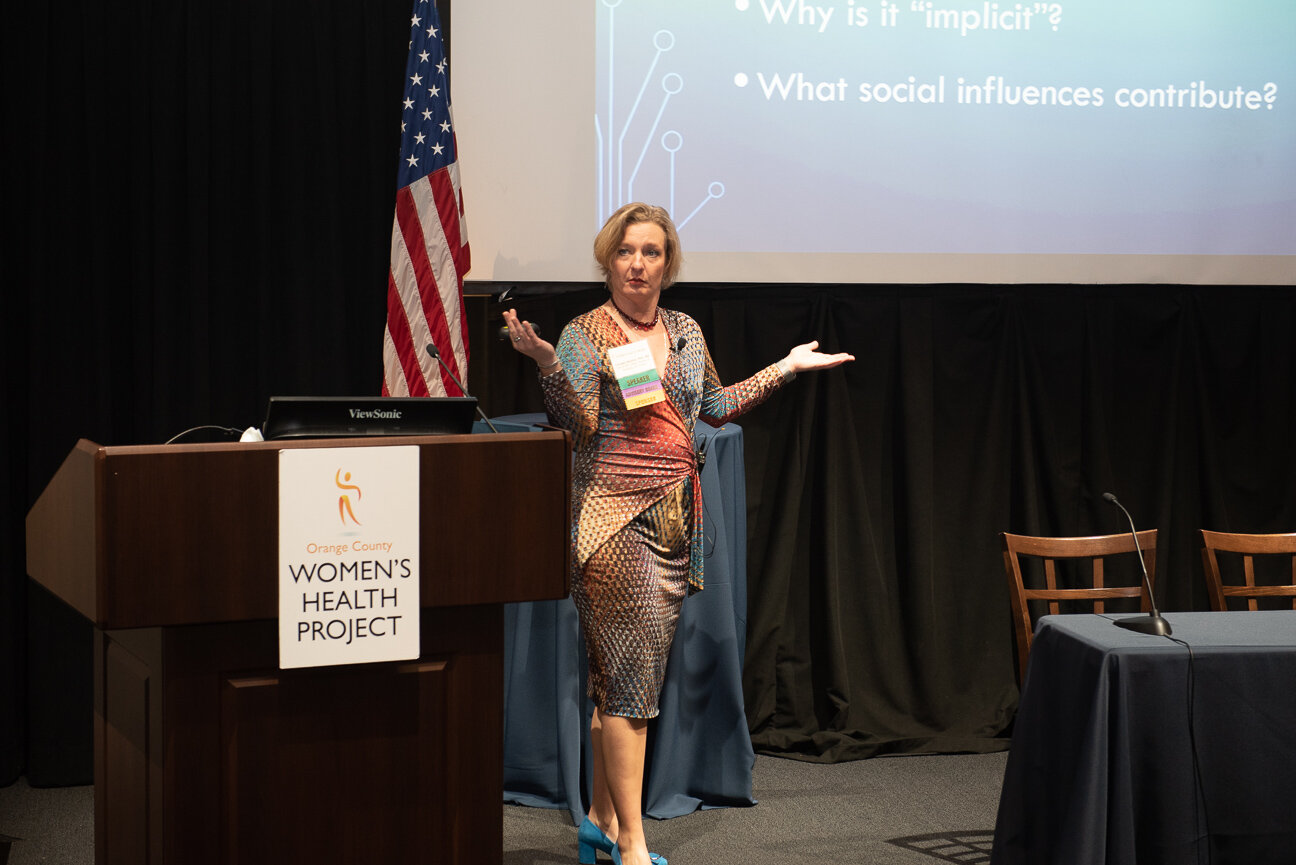
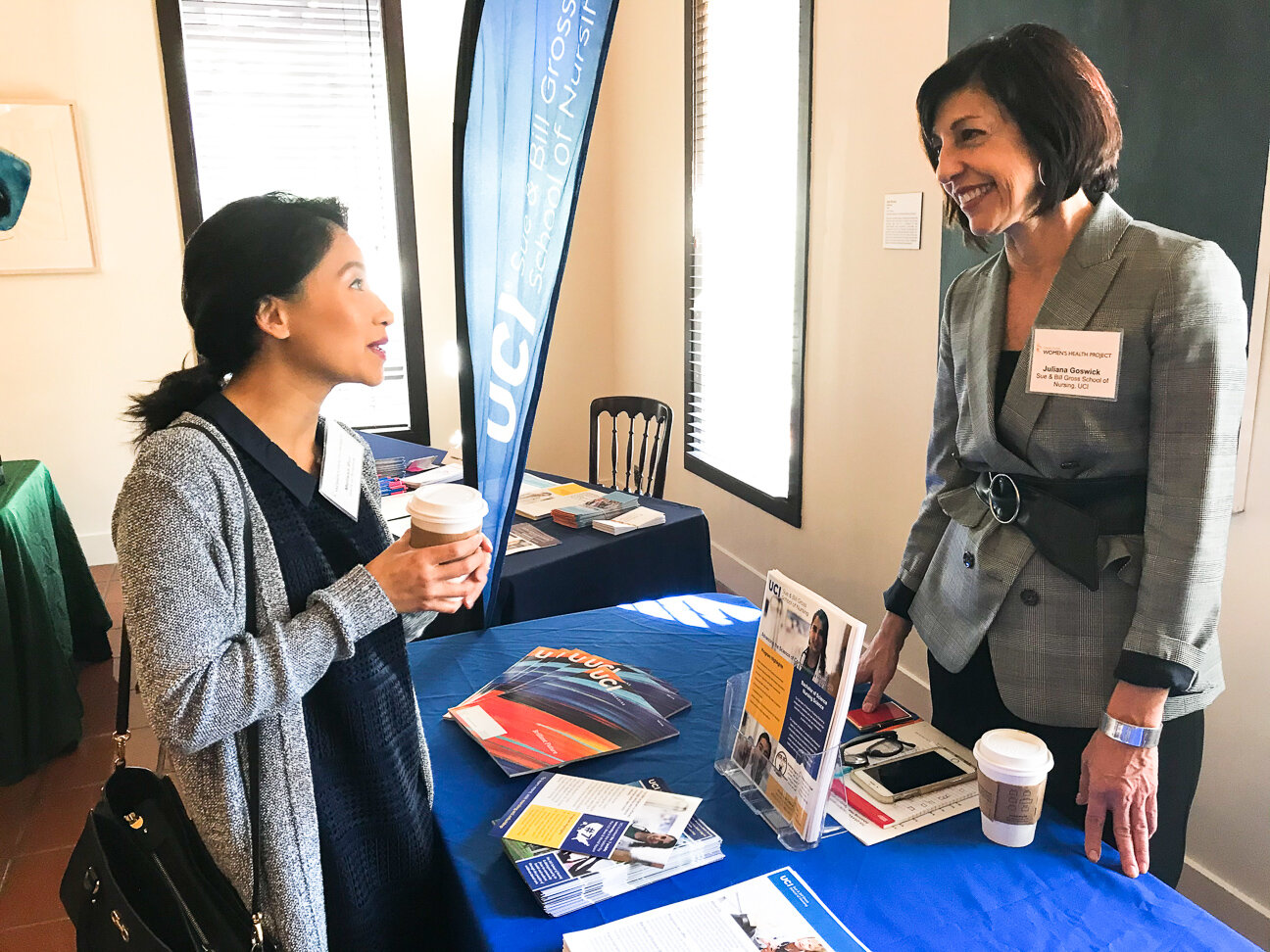
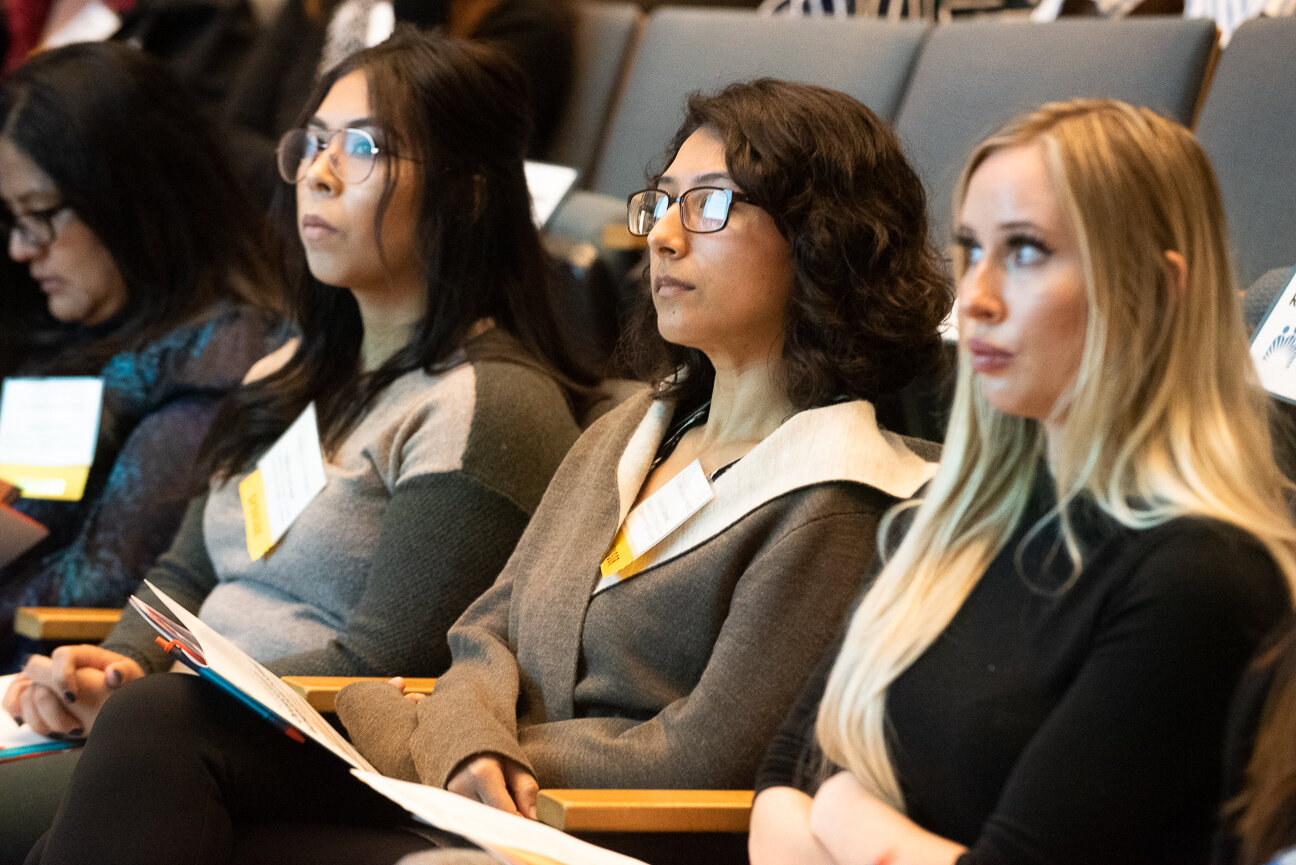
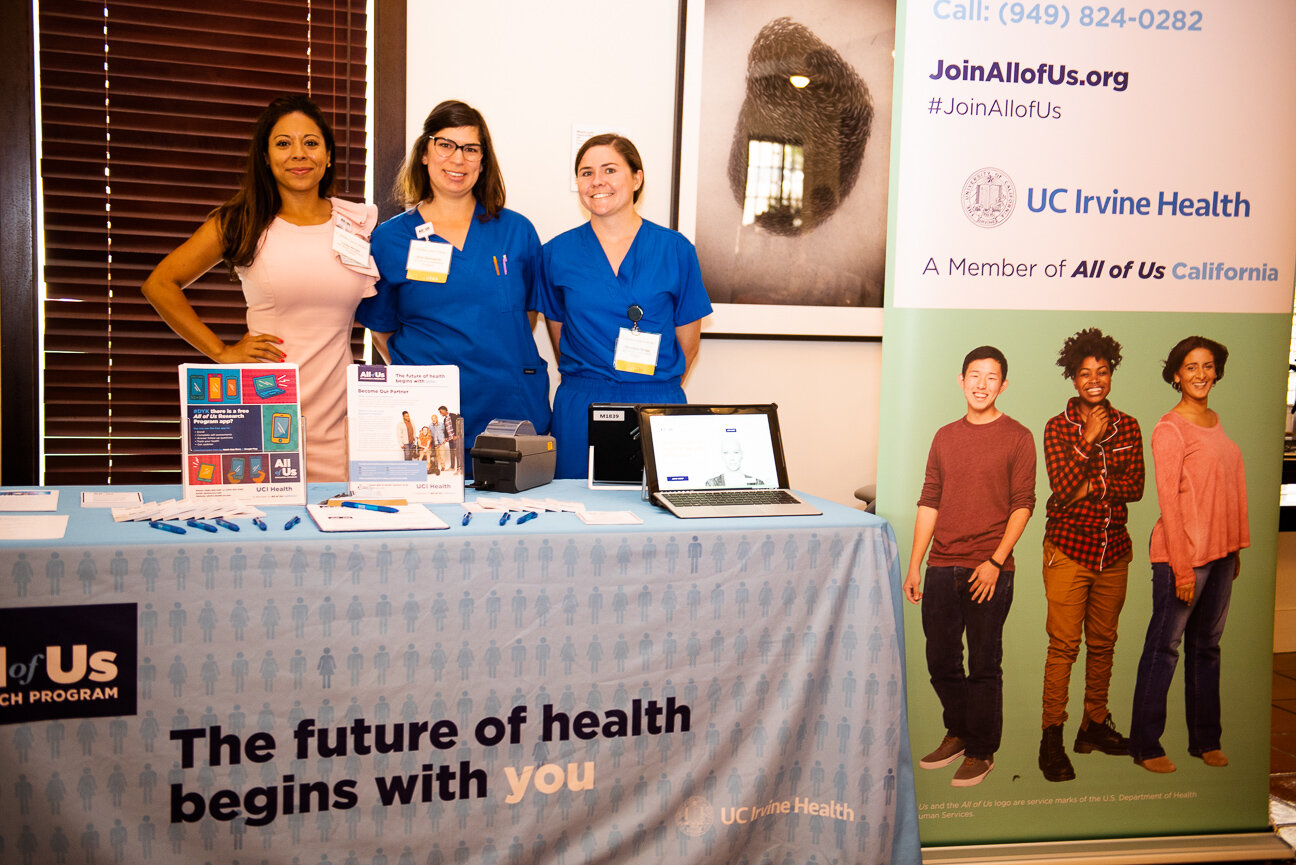
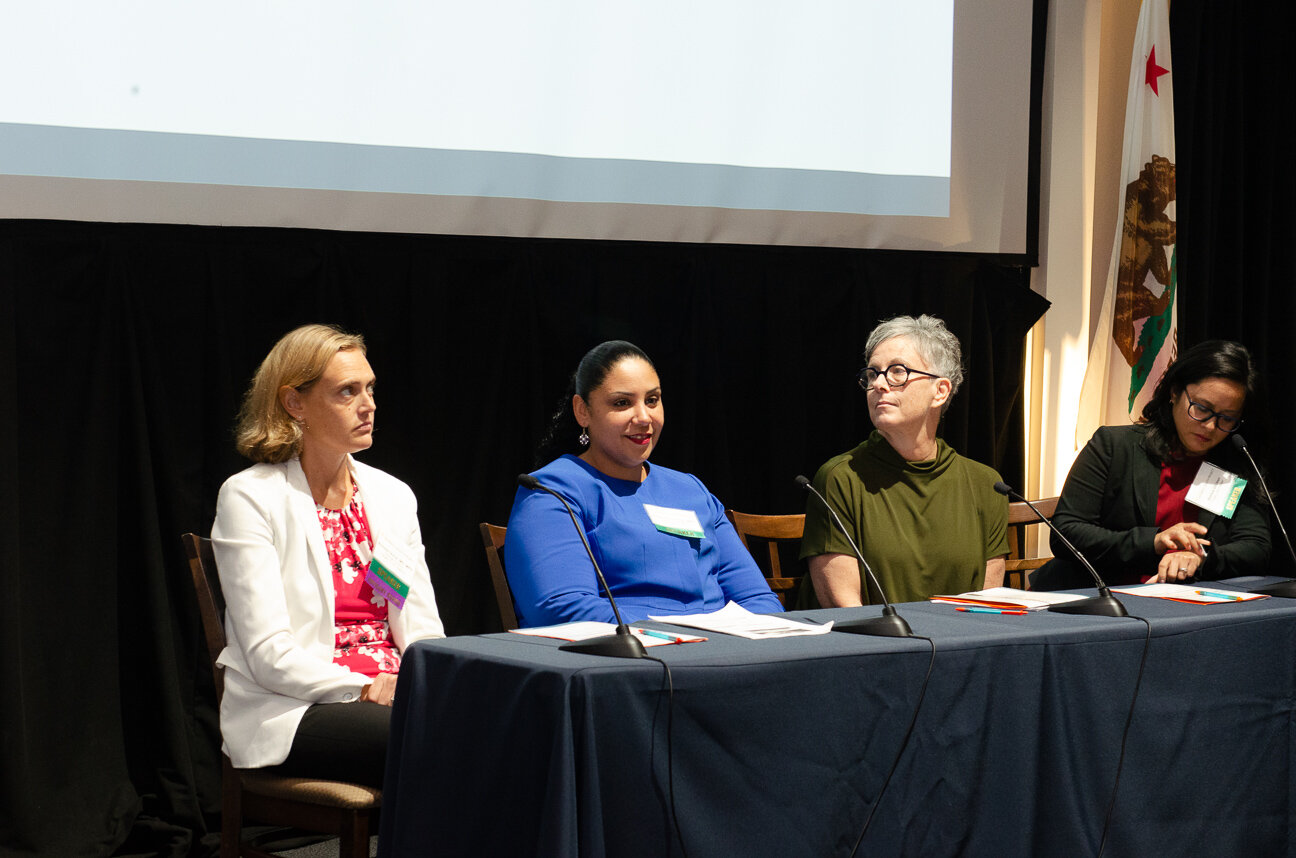
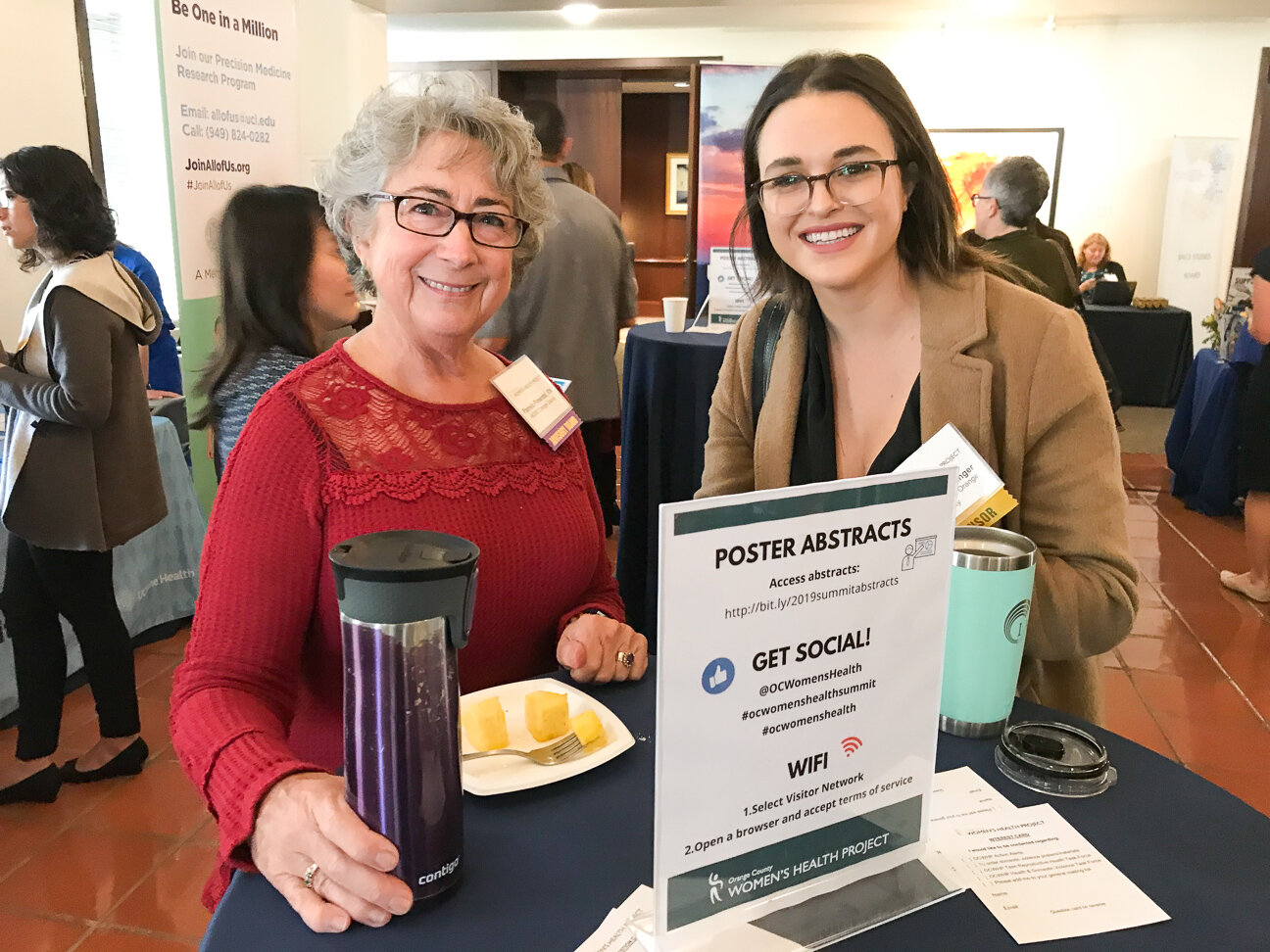
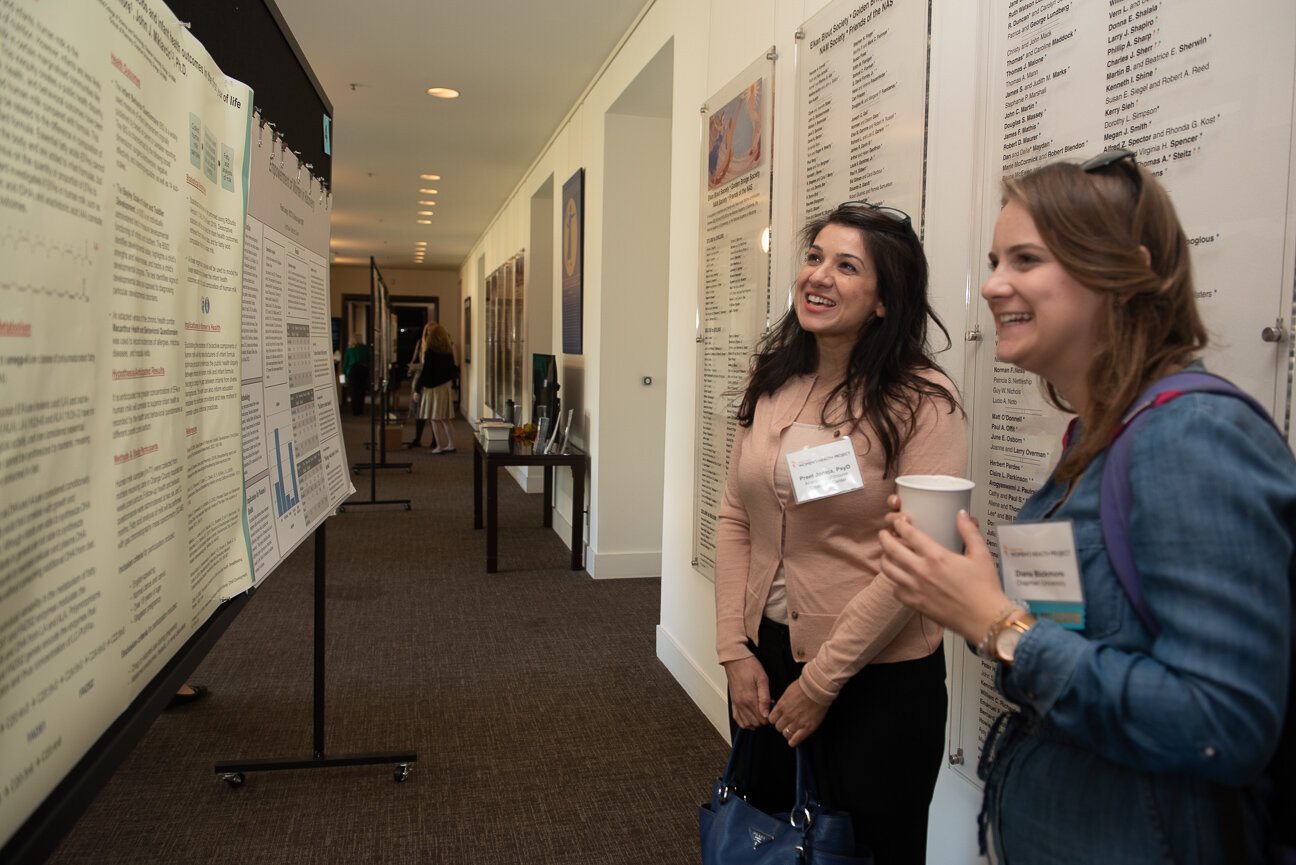
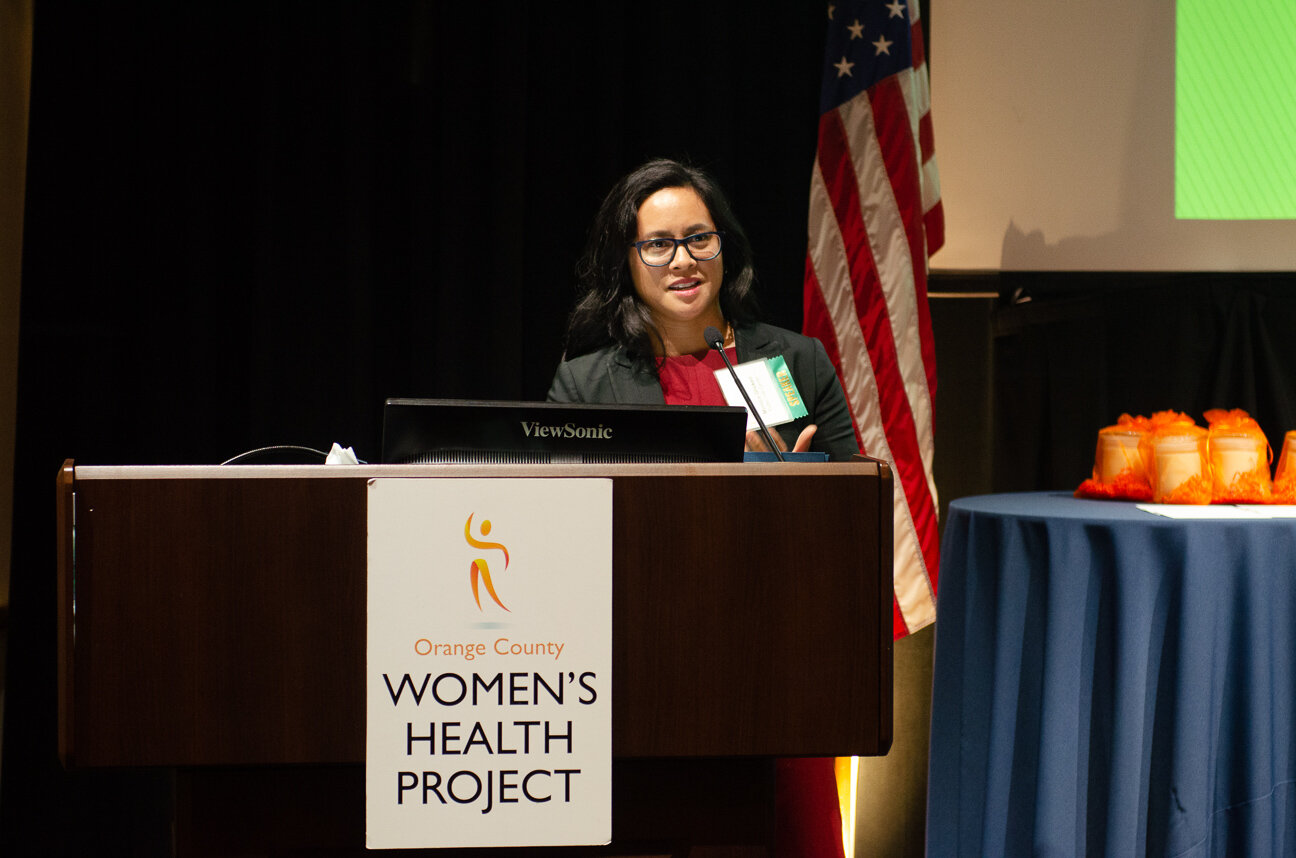
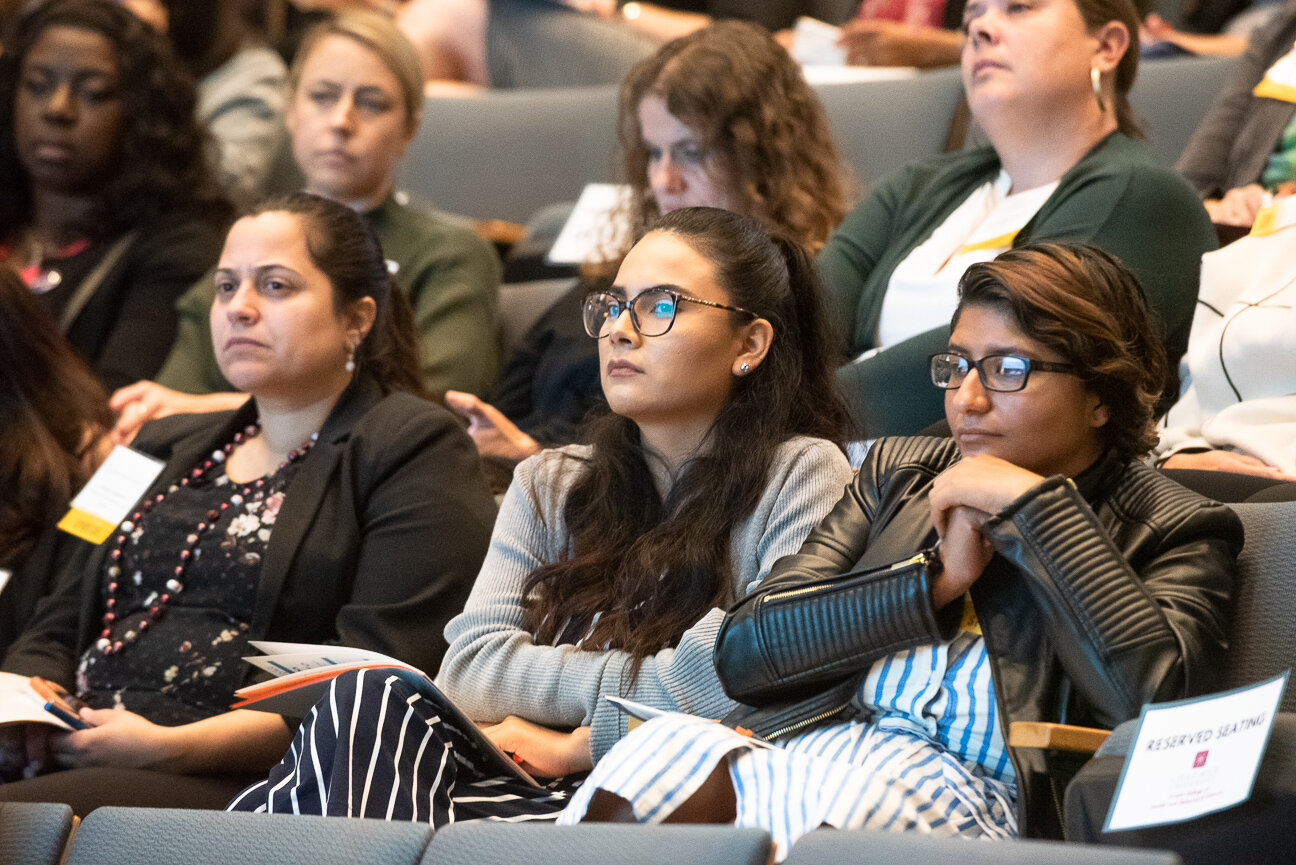
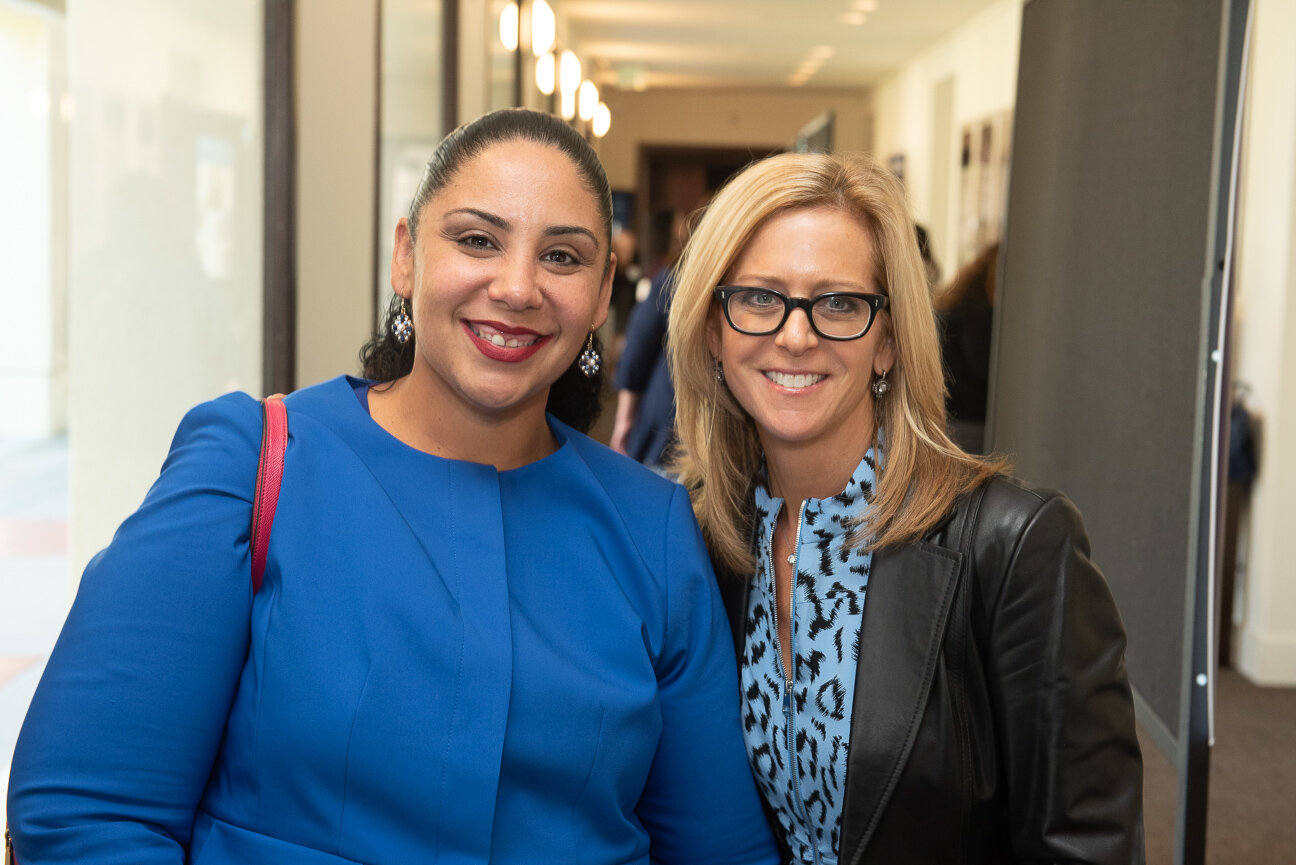

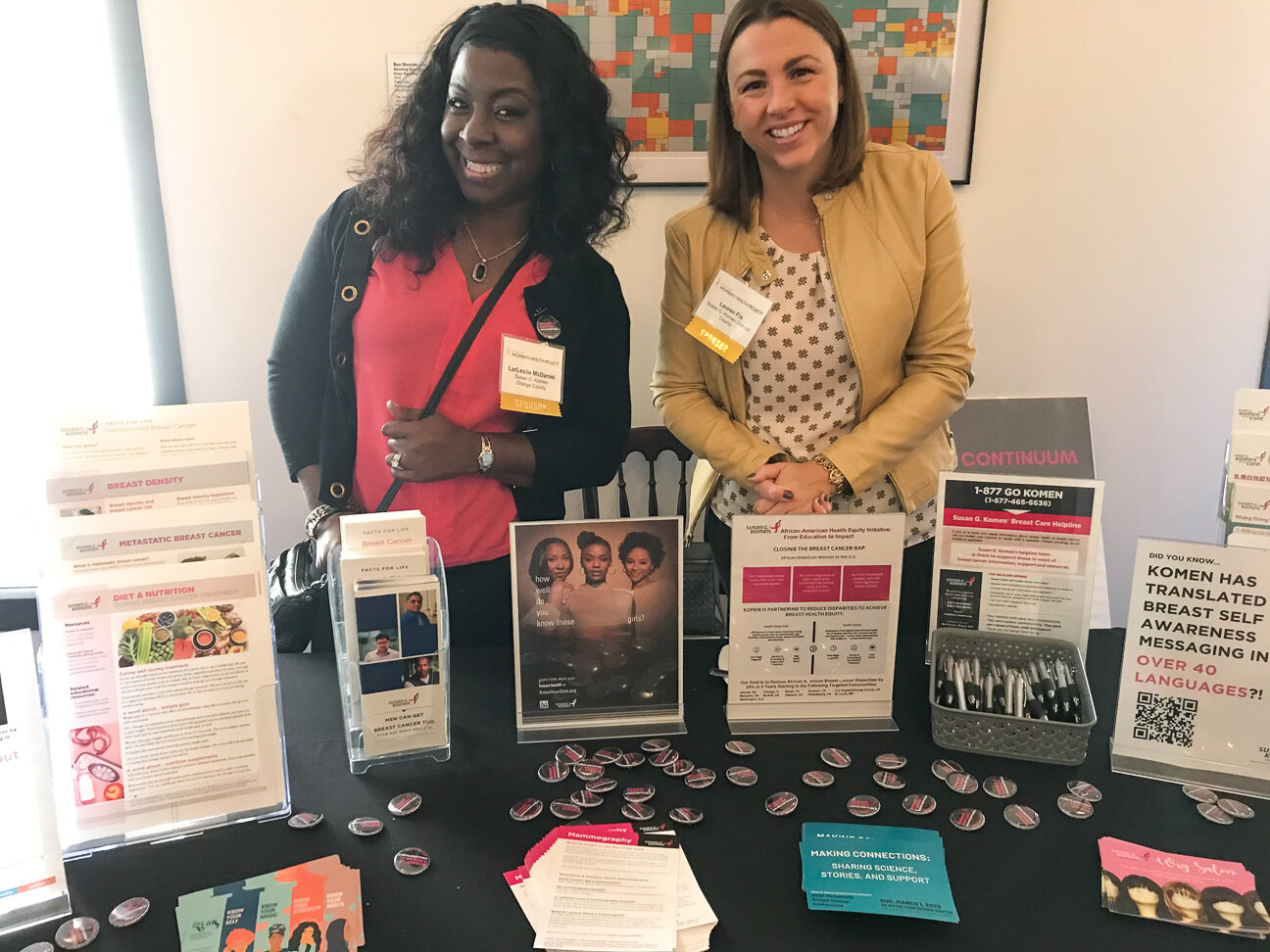
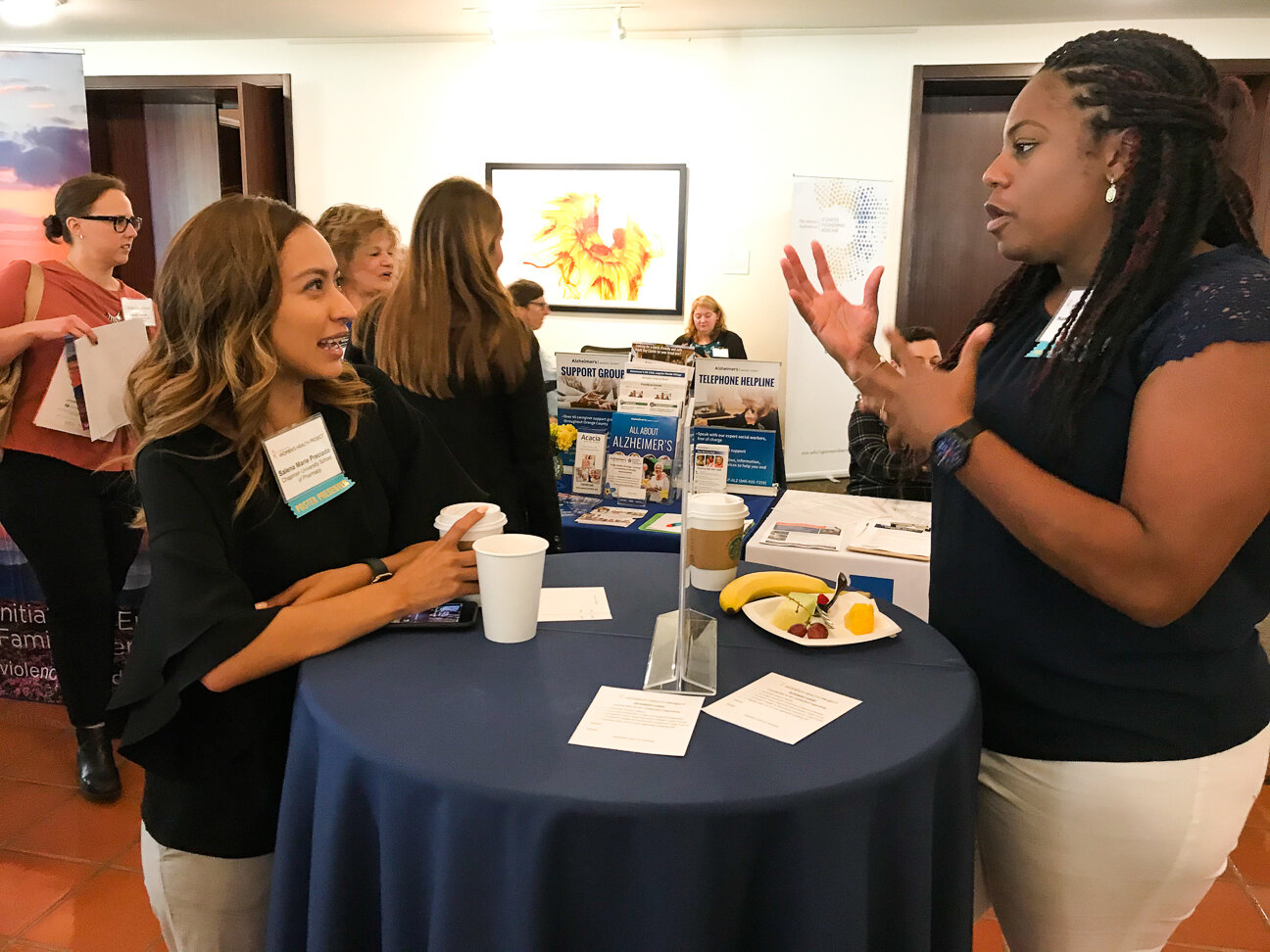
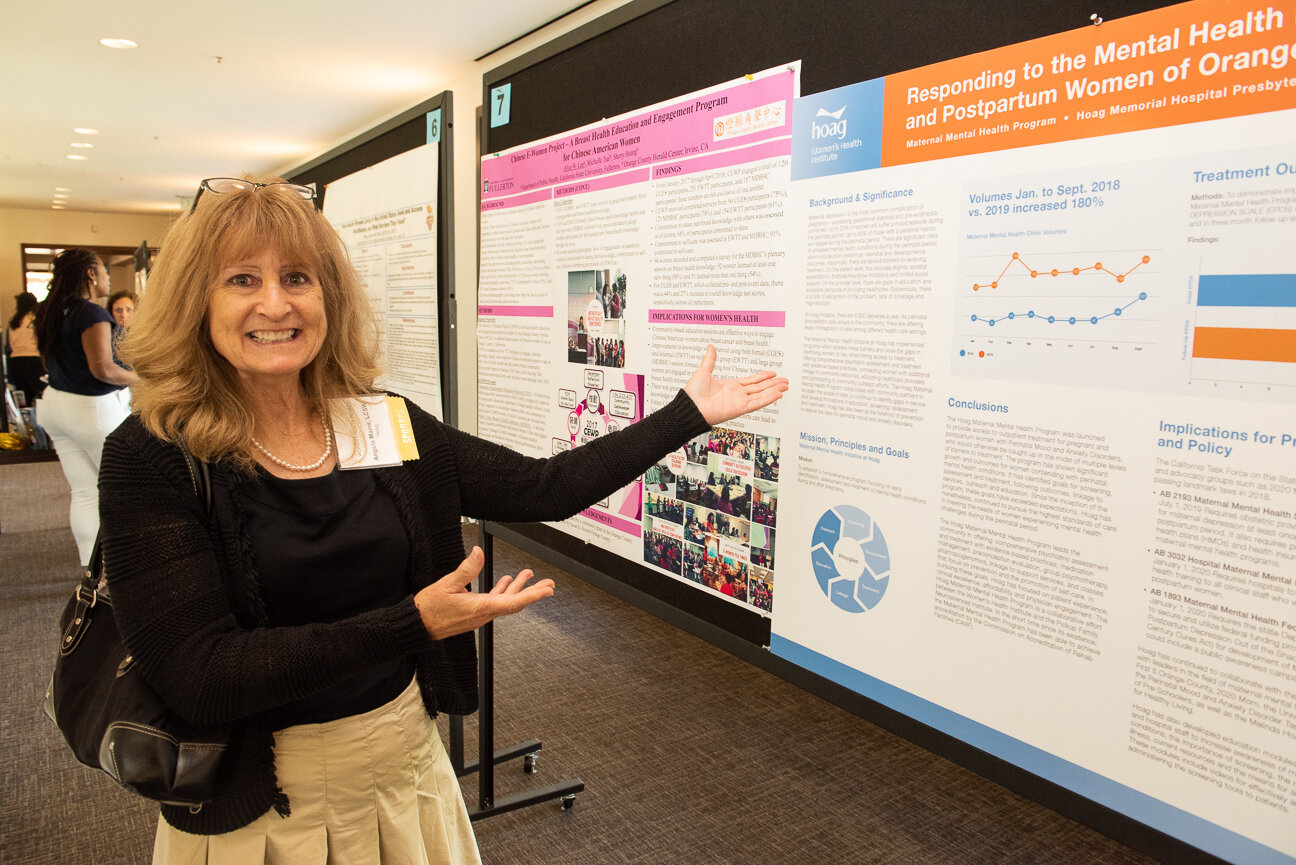
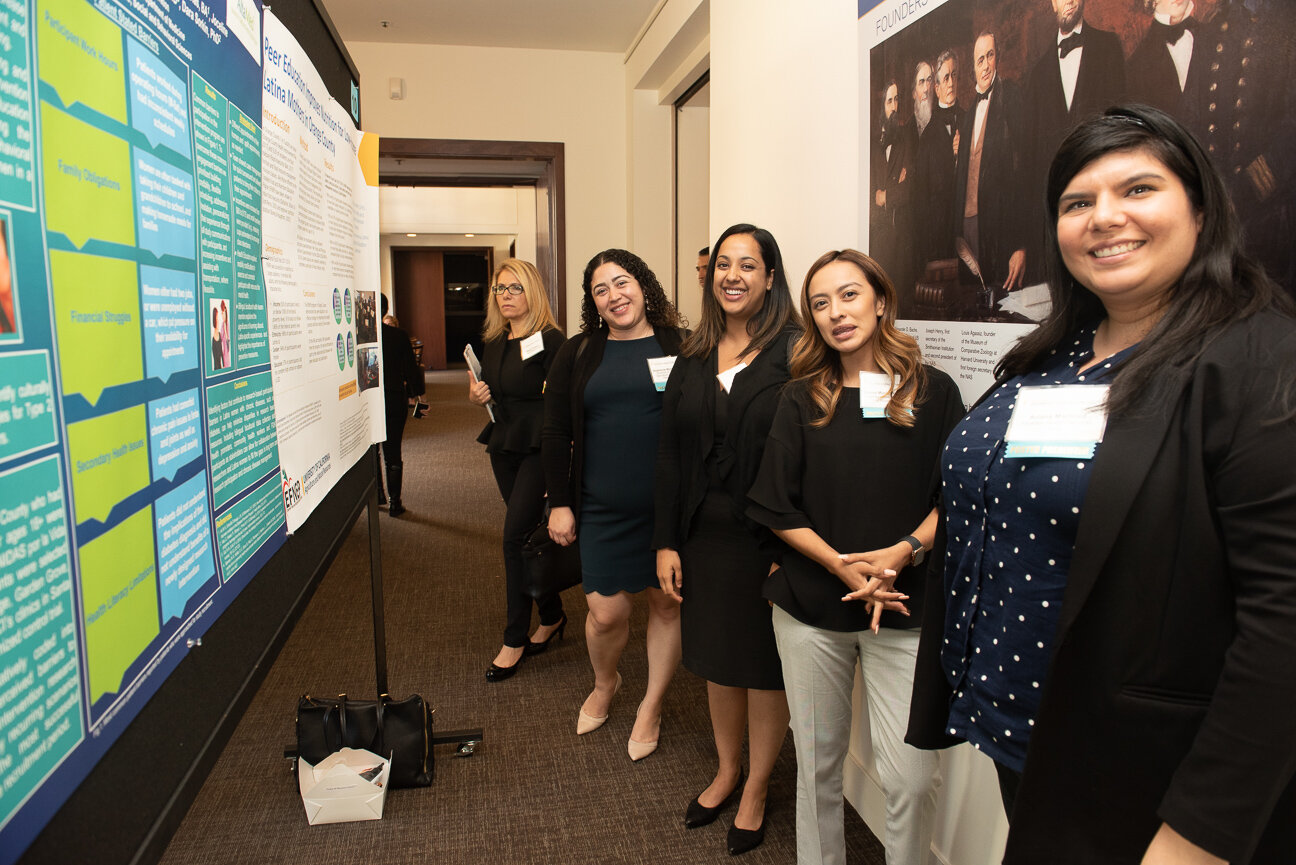
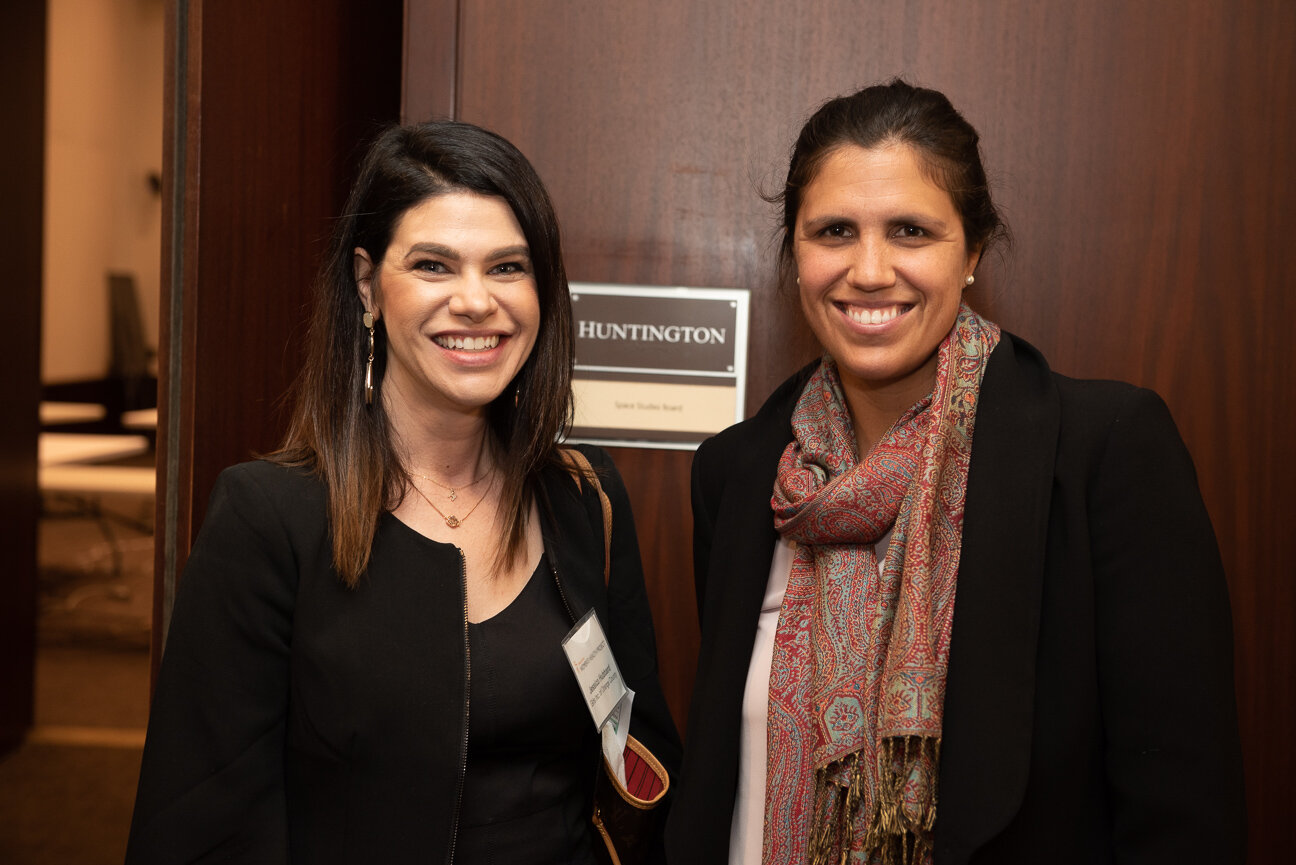
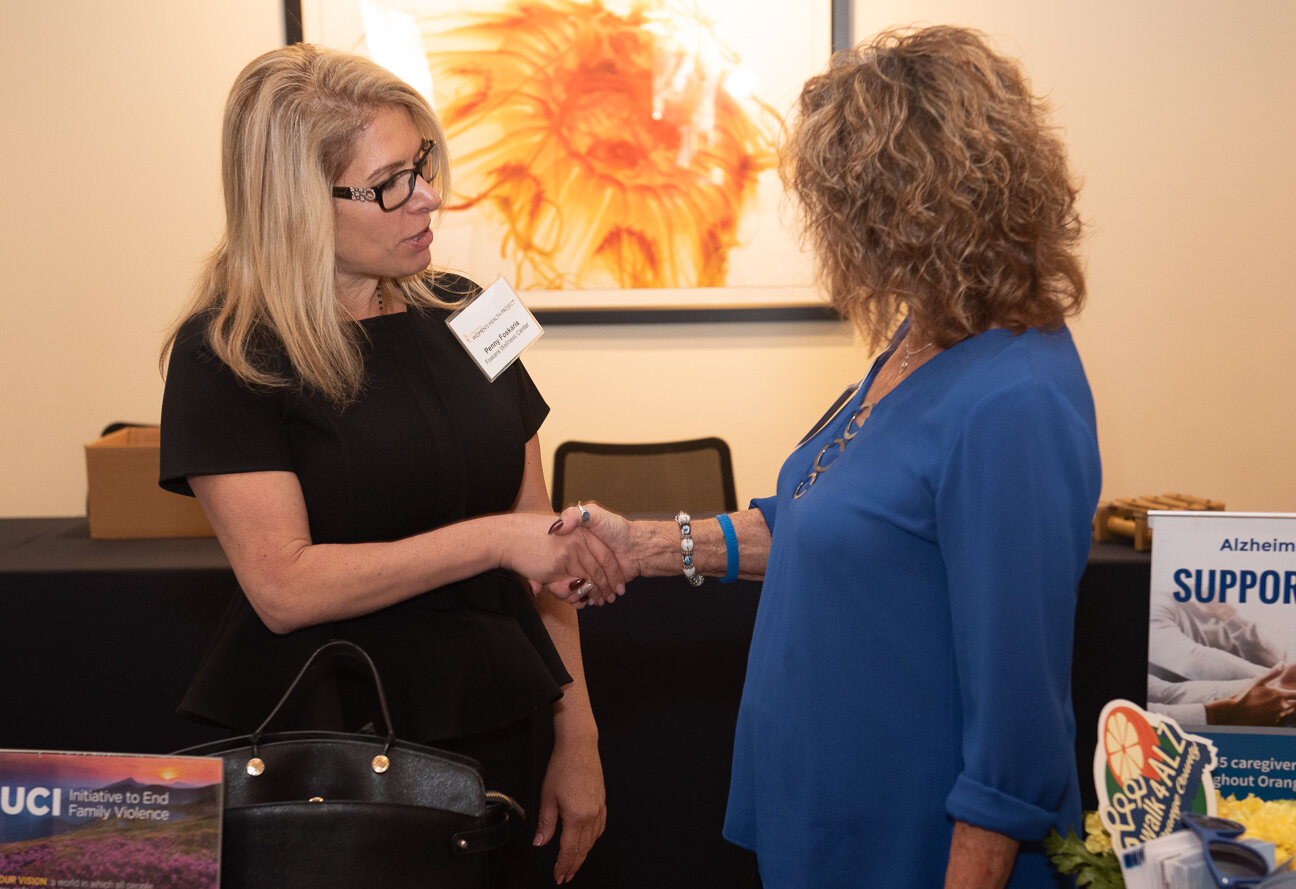
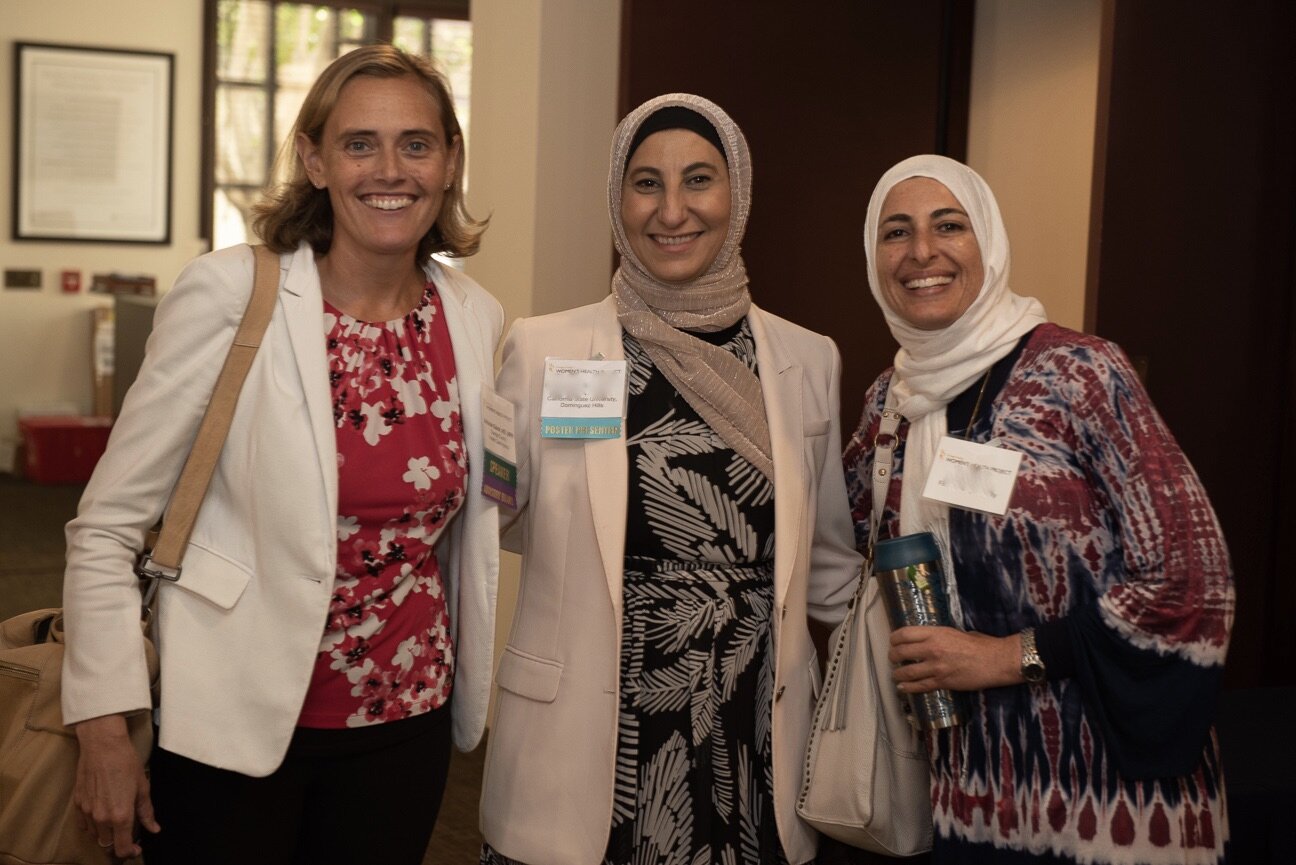
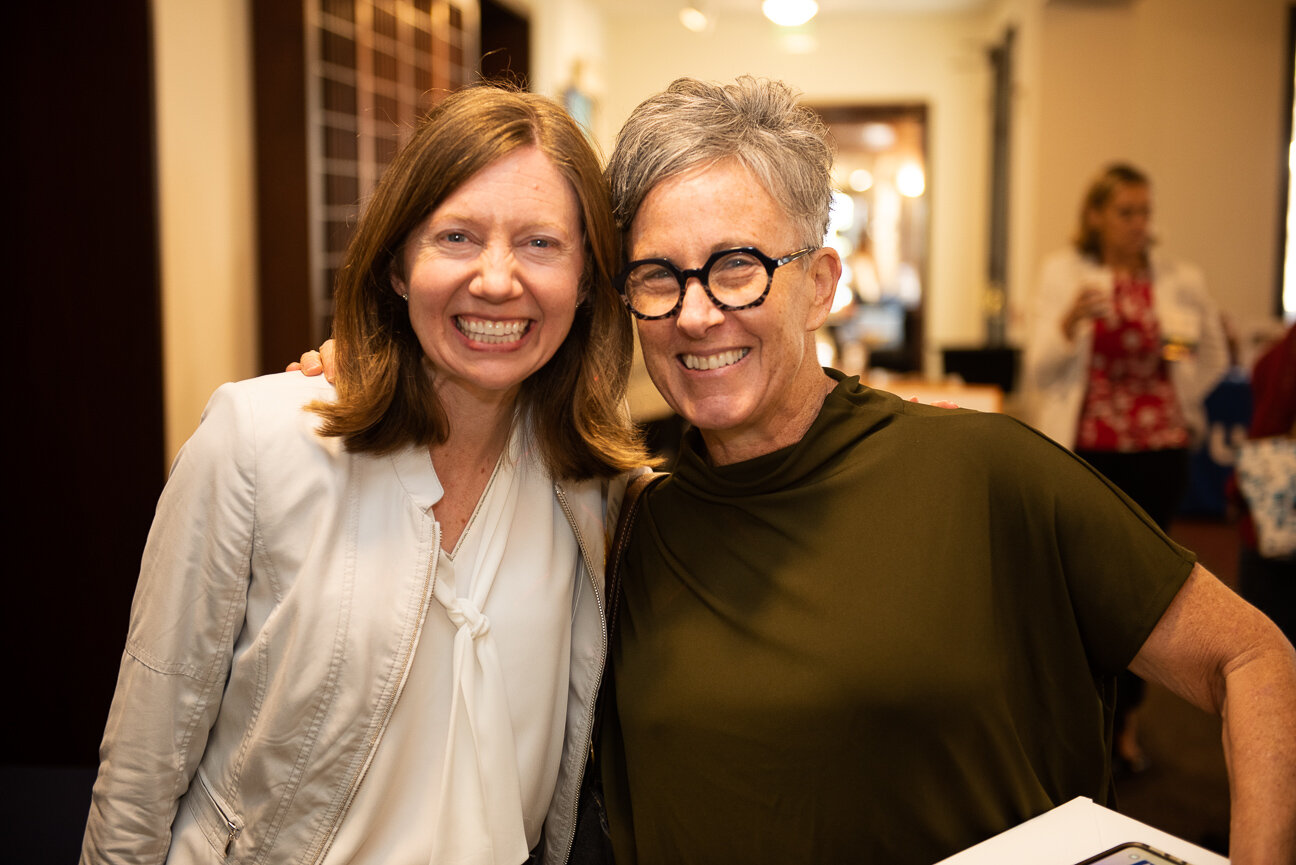
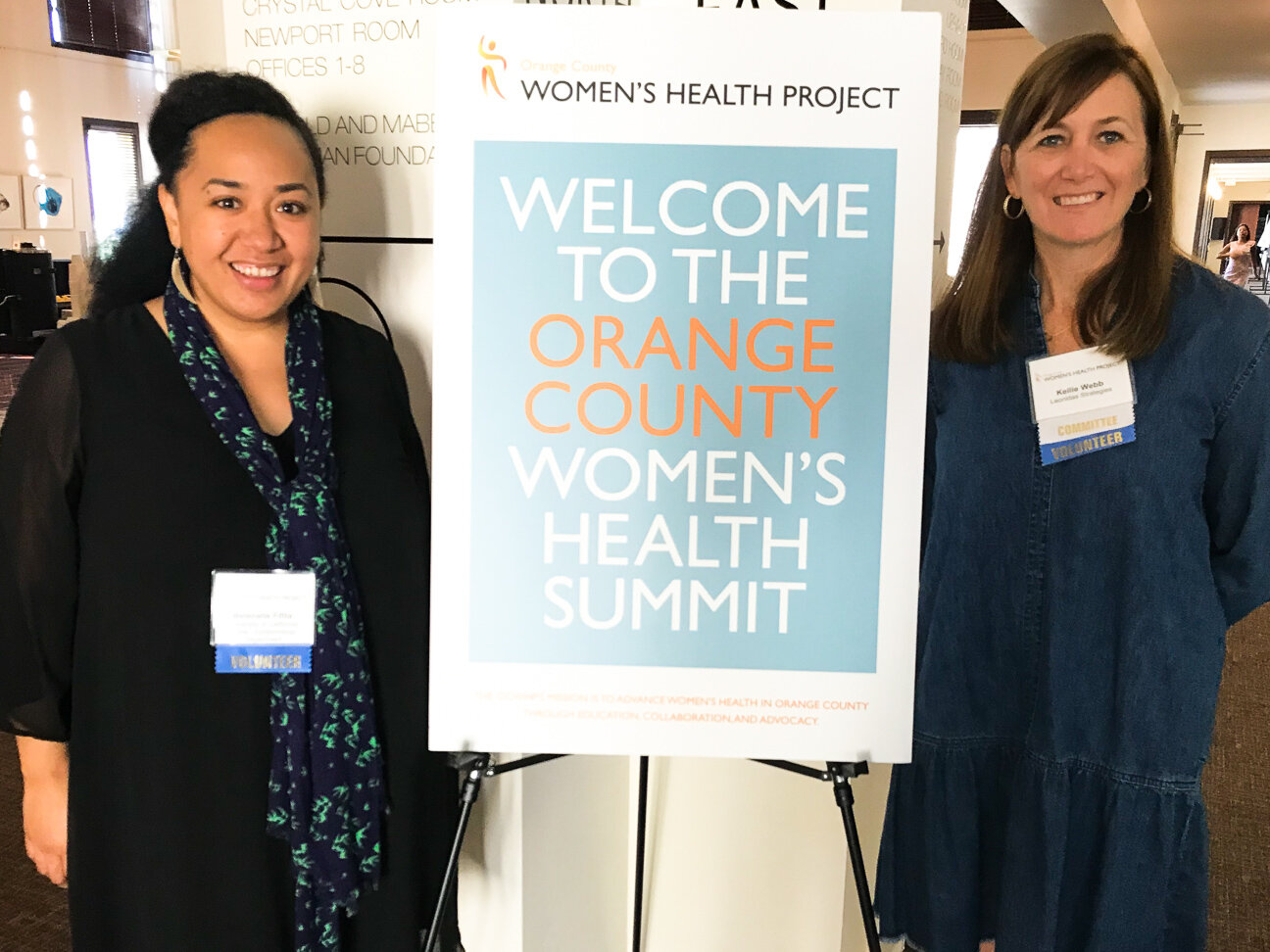
PRESENTATIONS & MATERIALS
Program
To view the Program from the 7th Summit, please click here.
Speaker Presentations
Policy Update – Assemblywoman Cottie Petrie-Norris, AD 74 and Allyson Sonenshine, JD & Mona Shah, JD, MPH, OCWHP
Keynote Address – Sandra R. Hernández, MD, President & CEO, California Health Care Foundation
OC Equity Update – Taryn Palumbo, Executive Director, OC Grantmakers
Panel – Drivers of Women's Health Inequities in Orange County
Geography – Nichole Quick, MD, MPH, Orange County Health Care Agency
Racism – Ambrocia Lopez, MAT, Director of Mission Programs, Susan G. Komen Orange County
Immigrant Status – Monica Eav Glicken, Esq., Directing Attorney, Immigration Unit, Public Law Center
Sexual Orientation & Gender Identity – Laura Kanter, MSW, LGBTQ and Social Justice Advocate, Consultant and Trainer, The Dorsey Group LLC
Implicit Bias Training – Candace Burton, PhD, RN, Assistant Professor, Sue & Bill Gross School of Nursing, University of California, Irvine
Poster Presentations
Abstract Book & Presenter Contact Information
Health Inequities: Conducting a health assessment to understand the needs of LGBTQI Latinx communities in Southern California – Grizell Alvarado, MPH, Latinx Task Force
Lactation Environment on California University Campus: A qualitative review – Lisa Bandong, MPH, Lecturer, Public Health, California State University San Marcos
Elucidating the Relation Between Human Milk Fatty Acids and Infant Health Outcomes in the First Year of Life – Diana Bickmore, Student, Graduate Student Instructor, Food Science, Chapman University
Empowerment of Women in Recovery – Preet Joneja, PsyD, Clinical Director, Anaheim Lighthouse Treatment Center
Being Counted Matters – Laura Kanter, MSW, Consultant, Santa Ana Building Healthy Communities
How Muslim Women Living in the United States Seek and Access Healthcare, and What Barriers They Face – Wafa Khasawneh, PhD, MSN, RN, IBCLC, Assistant Professor, Nursing, California State University, Dominguez Hills
Chinese E-Women Project – A Breast Health Education and Engagement Program for Chinese American Women – Alice Lee, PhD, MPH, Assistant Professor, Public Health, California State University, Fullerton
Responding to the Mental Health Needs of Pregnant and Postpartum Women of Orange County – Angela Mains, LCSW, Clinical Navigator, Therapist, Hoag Maternal Mental Health
Engaging Women in their Health through UNIDAS por la Vida Research Study – Ariana Martinez, MPA, BS, Project Management - Clinical Research Supervisor, Health Education and Wellness, AltaMed Health Services Corp.
Peer Education Improves Nutrition for Low-Income Latina Mothers in Orange County – Stephanie Monterroza, MPH, Community Education Supervisor, Orange County Cooperative Extension, University of California Agriculture and Natural Resources
Social and Demographic Differences Among Women Diagnosed with Polycystic Ovary Syndrome – Tiffany Nguyen, PharmD, Postdoctoral Fellow, School of Pharmacy, Chapman University
Opioid Prescribing Patterns for Women of Reproductive Age and Pregnant Women – Salena Marie Preciado, MS, Graduate Student, Chapman University School of Pharmacy
Opportunities to Decrease Preterm Births Among African American (AA) Women in Los Angeles County (LAC) – Diana Ramos, MD, MPH, Adjunct Assistant Clinical Professor, Obstetrics/Gynecology, Keck School of Medicine, USC
Taking Action to Reduce Infant Feeding Disparities in Los Angeles County – Nakeisha Robinson, MA, LMFT, Equity Chair, BreastfeedLA
Organization Matrix
Lists all organizations attending the Summit and their area of focus and target population.
Participant List
Lists participants at the Summit and their contact information (only those who gave permission).
HEALTH EQUITY
Health equity is achieved when every person has a fair and equal opportunity to reach their optimal health and no one is disadvantaged due to their race, ethnicity, gender, sexuality, socioeconomic status, zip code or other circumstances. Health inequities are reflected in access to care as well as health outcomes; to advance health equity locally, our efforts must tackle individual/community inequities and address the social determinants of health rather than focus exclusively on the availability and accessibility of healthcare services. This approach creates a system that is more equitable, where all individuals are valued and have the social and economic resources they need to be healthy.
WHY THIS IS RELEVANT TO ORANGE COUNTY?
According to the recently released Orange County Grantmakers “An Equity Profile of Orange County,” Orange County has 3.1 million residents, approximately 50% of whom are women. Moreover, 58% of the county’s population are people of color, many of whom are immigrants. Although economic improvement and job growth in Orange County have outpaced the national average, this growth is not benefitting everyone. Orange County ranks 58th in income inequality among the 150 largest regions. Wages for low-wage workers are falling at a faster rate than they are nationally, there are vast wage disparities between Latinos and whites in Orange County, women of color have the lowest median hourly wages, and in general people of color are more likely to live in poverty. In Orange County, Latinos are at higher risk for being overweight and having diabetes; Asian Americans and Pacific Islanders are at higher risk for diabetes, obesity, and cardiovascular disease; and African Americans and Native Americans have the highest incidences of heart disease mortality. Moreover, gender plays a significant role in quality of life and health outcomes for residents of Orange County.
In Orange County, women get paid less than men for the same level of education and occupation (2011-2015 American Community Survey, 5 year estimates)
More women than men live under the Federal Poverty Level, and this increases as women age (2011-2015 American Community Survey, 5 year estimates)
Although white women are diagnosed with breast cancer at a much higher rate than other women in Orange County, Black and Pacific Islander women die from breast cancer at a much higher rate than all women in Orange County (OCHT)
Lower-income cities in OC have significantly higher teen birth rates than the county, state, and nation (OCHT)
Women have a higher death rate due to Alzheimer’s disease (41.4) than the County’s average (37.6) and OC men (31.1) (OCHT)
OC women experience ovarian cancer at higher rates than CA and U.S. (OCHT)
In short, Orange County women face economic and health disparities that result in meaningful inequities. Any response will require a comprehensive approach with strategies that bridge social, physical, and economic factors, all in support of new policies and stronger systems.


